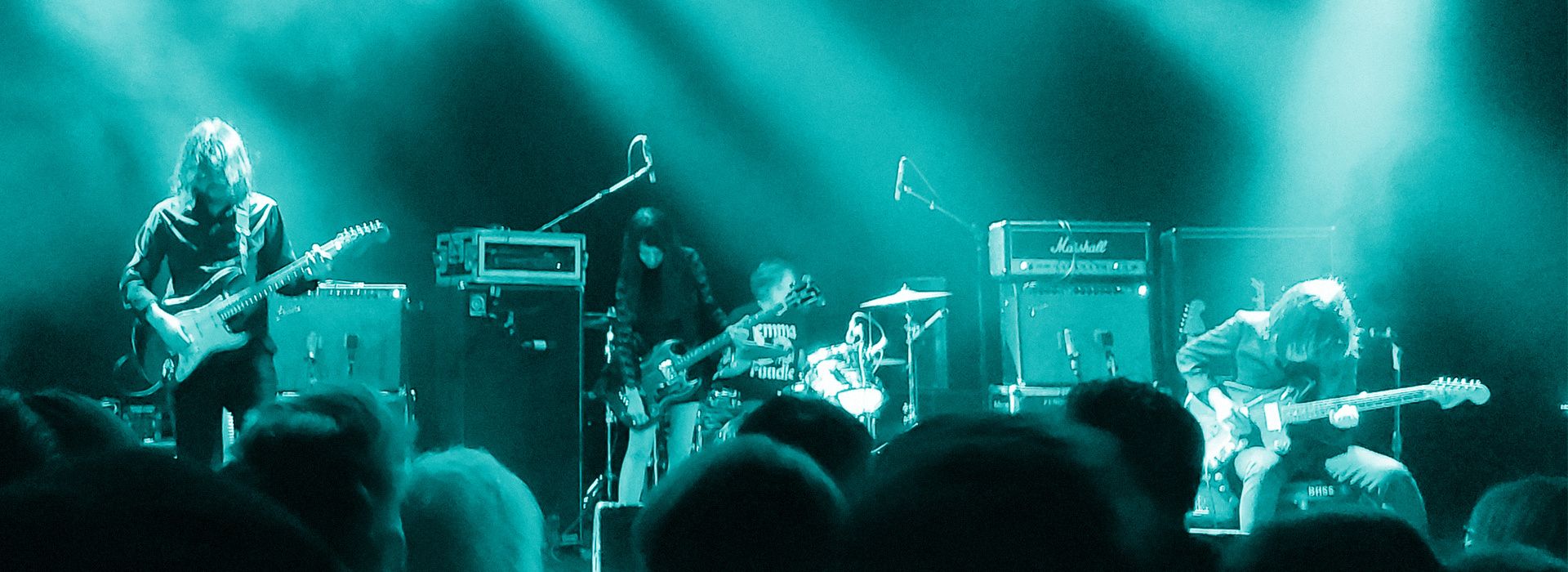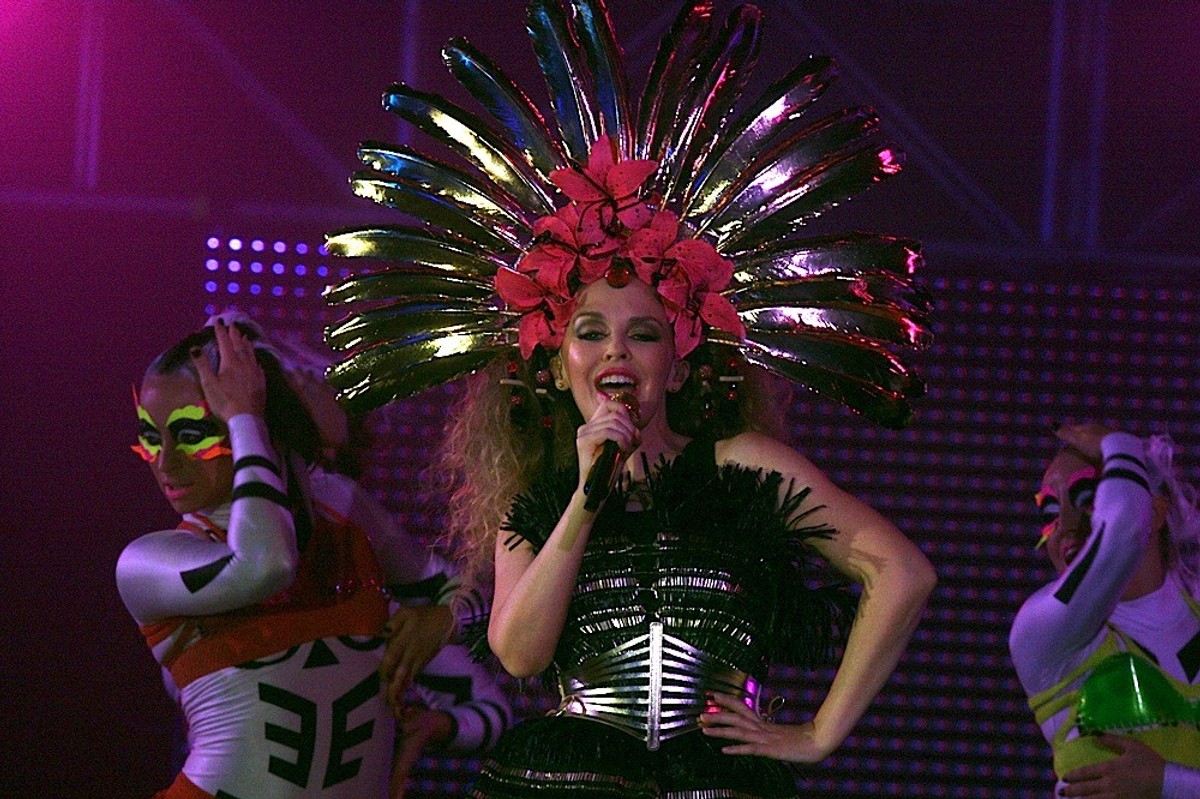Review
MONO
Metro Theatre, March 7
Rating: Five stars
There was a moment about halfway through MONO's 100-minute-set that shocked the audience into submission. A perfectly abrupt leap in volume from their most dulcet to absolute, an unrelenting distortion which left the audience at the mercy of these consummate Japanese post-rockers.
MONO were playing in Sydney for the seventh time, to celebrate their 20th anniversary together and the release of their 10th studio album. With credentials like that, it was surprising to some that the Metro Theatre wasn't sold out or anywhere near its 1350-person capacity.
But MONO don't play stadium rock. What MONO deal in is a niche genre of experimental music called post-rock. The band use traditional rock instruments to break the traditional rock mould, exploring texture and dynamics rather than melody and repeating sections ad nauseum until their initial sound is beaten to a pulp. The few hundred attendees were there for a masterclass in soundscaping.
The duelling guitars of Takaakira "Taka" Goto and Hideki "Yoda" Suematsu opened the set, playing "After You Comes The Flood" off their latest record Nowhere Now Here. The two sat on stools, undulating with the waltzing rhythm of the piece. Then, suddenly, Dahm Majuri Cipolla's devastating drum hits and Tamaki Kunishi's driving bass barge their way in, all in sync as the waltz becomes a march. It's here one would think MONO are at their peak, but the crescendo had only just begun. Taka took flight through a combination of effects pedals and his double amplifier setup, leaving a piercing wave of distortion akin to TV static in his wake. MONO were in complete control of their chaos.
For a band so enamoured with noise, their quiet sections were like a refuge; calm and warm but that refuge created a false sense of security.
The intensity of the band's performance caused a breakout of collective headbanging in the audience, an ebb and flow that mimicked the movements of Taka, Yoda and Kunishi on stage. But that's where the band-audience interplay started and ended. MONO were absorbed by what they were creating, with eyes closed and heads pulled down to the floor and or up to the ceiling (as if attached to marionette strings), never looking out to their devotees. Kunishi, often the lone standing member, planted her feet, resolutely immobile, for the entirety of some 10- minute compositions. Twenty years of playing together manifested in this blind synergy. Cipolla, who only joined the ensemble in 2018 after the abrupt departure of long-time drummer Yasunori Takada, conversely kept his gaze focused on his bandmates, as if for direction and cues.
Perhaps even more impressive than MONO's highs were their lows. The middle portion of the set saw Kunishi shift between combinations of synth, piano and ambient vocals for the more mellow pieces, as the guitars of Taka and Yoda twinkled around the child-like glockenspiel of Cipolla. For a band so enamoured with noise, their quiet sections were like a refuge; calm and warm but that refuge created a false sense of security. As Kunishi moved back to her bass, Taka and Yoda's guitars were fading out, seemingly signalling the end to a soothing interlude. Then, as if to capture the essence of their latest album title, Nowhere Now Here, it came. From out of nowhere. MONO hammered the crowd with every decibel they had in a moment of dynamic perfection. Anyone feeling relaxed and comforted by the previous section was immediately thrown into a state of complete shock and awe. "What the f---" and "holy shit" could be heard around the venue after it was over.
Just before ending their set, Taka stood up from his chair to finally address the audience, thanking the crowd for 20 years of support. Then, they closed with the 16- minute epic, "COM(?)". The band were nice enough to build to their climax for this piece, a steady crescendo that lifted Taka and Yoda from their stools. The sonic peak of the piece, a gut punch in its own right, was repeated for at least four minutes until the music, and the audience, became numb. In a moment of passion and rapture, Taka lifted his guitar above his head and began screaming into the pickups, loud enough to transcend the explosion of sound coming from his gear. One by one, the members filed off stage until all that was left was a piercing static erupting around the room.
It was a hurricane, a cyclone. It was the sound of the apocalypse and it was beautiful.
Nason graduated from UNSW with a Bachelor's degree in Media (Communication and Journalism). He has a passion for rugby, obscure music genres and brevity in bios.






